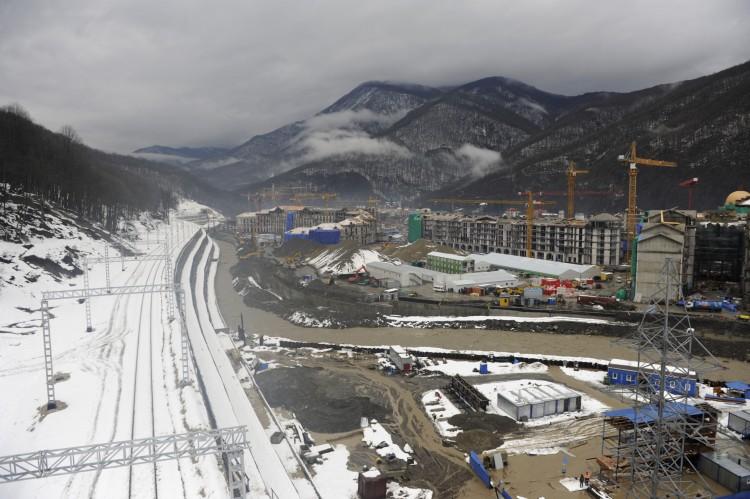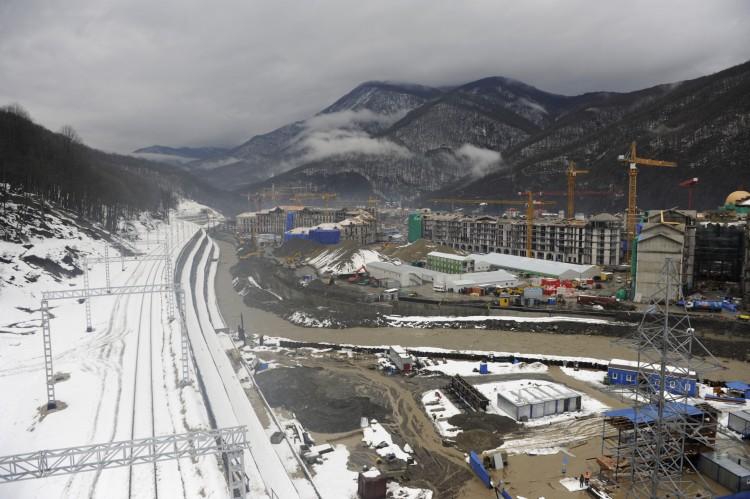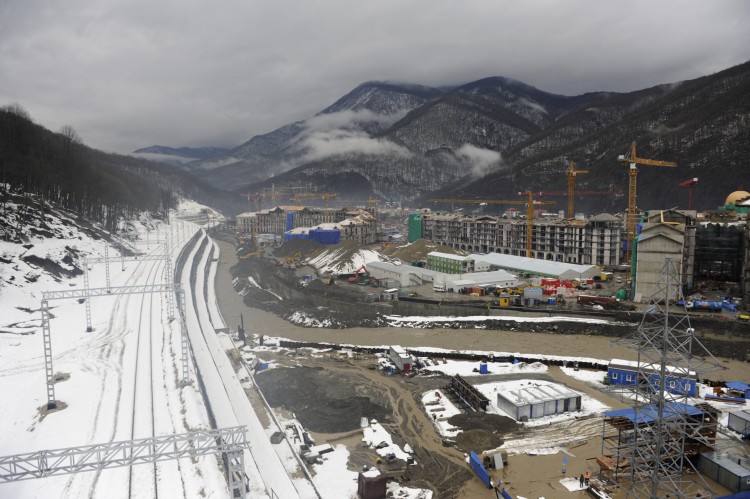Scores of migrant workers helping construction and building efforts in the Russian city of Sochi, where the Winter Olympics will be held in exactly a year, are being exploited and cheated out of their wages, a rights group said Wednesday.
“I worked for almost three months … for nothing. Nothing but promises, promises from them,” one worker, “Omurbek,” who came from Uzbekistan to work in Sochi, told Human Rights Watch (HRW), which commissioned the report. Omurbek said he was offered a job in December 2011 that would pay him $770 per month.
Omurbek is one of more than 16,000 migrants working in Sochi, a city located on the Black Sea near Georgia, and one of many who told the New York-based rights group about similar alleged abuses.
“Numerous workers on the Central Olympic Stadium site and on the Main Olympic Village site interviewed by Human Rights Watch said employers withheld the first month’s wages,” HRW stated. “Workers received their first payment only after working for two months, and were told they would get the first month’s wages only after the employer decided they had completed the job.”
If they quit or were fired, they would not get their first month’s wages. Many of the workers had to work 12 hours per day seven days a week with few days off, which contravenes Russian law. Some of the workers’ passports and work permits were confiscated, apparently as a form of coercion to remain in jobs that pay poorly and to force them to work long hours, according to the group.
Citing one example, HRW interviewed two men from Ukraine who worked for nearly three months straight without being paid their promised wages.
“We will work until tomorrow and then see,” a foreman named Viktor said. “Each day, we will work until tomorrow, hoping to be paid.” After nearly three months of work, they had each gotten only around $420, when they had been promised $1,500 per month.
Migrant workers from Armenia, Kyrgyzstan, Serbia, Tajikistan, Uzbekistan, and Ukraine have been used to help construct the Central Olympic Stadium, the Main Olympic Village, and the Main Media Center. Moscow is dramatically changing the resort city into one that can host large groups of people ahead of the Winter Games, constructing massive hotels, transportation systems, and infrastructure.
But these workers have received only around $1.80 to $2.60 an hour on average, the group said.
“Like the athletes competing in the 2014 Winter Olympics, Russia has big hopes and dreams for its performance in Sochi as the host,” said Jane Buchanan, the associate Europe and Central Asia director for HRW. “But exploiting workers is a victory for no one, and Russia urgently needs to change course.”
Semyon Simonov, the head of a two-man worker advocacy group in Sochi, said that his group is collecting complaints and rights abuses.
“The most sensitive thing for them is when they don’t get paid,” he told The Associated Press. “They don’t mind the miserable conditions they live in. They’re willing to put up with this as long as they get paid.”
Dmitry Chernyshenko, the head of the Sochi organizing committee, told AP that there has been no mistreatment of workers in the city.
“If there are some violations and people go to prosecutors—believe me in Russia the law is always on the side of laborers, not on the side of the employer,” he said.
Sochi Mayor Anatoly Pakhomov added that “conflicts like this are very few,” referring to alleged rights abuses in the city. “If the violations of labor laws were widespread, the online community would be all over it. We don’t see anything big in the Internet,” he said.






